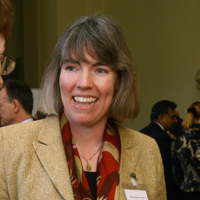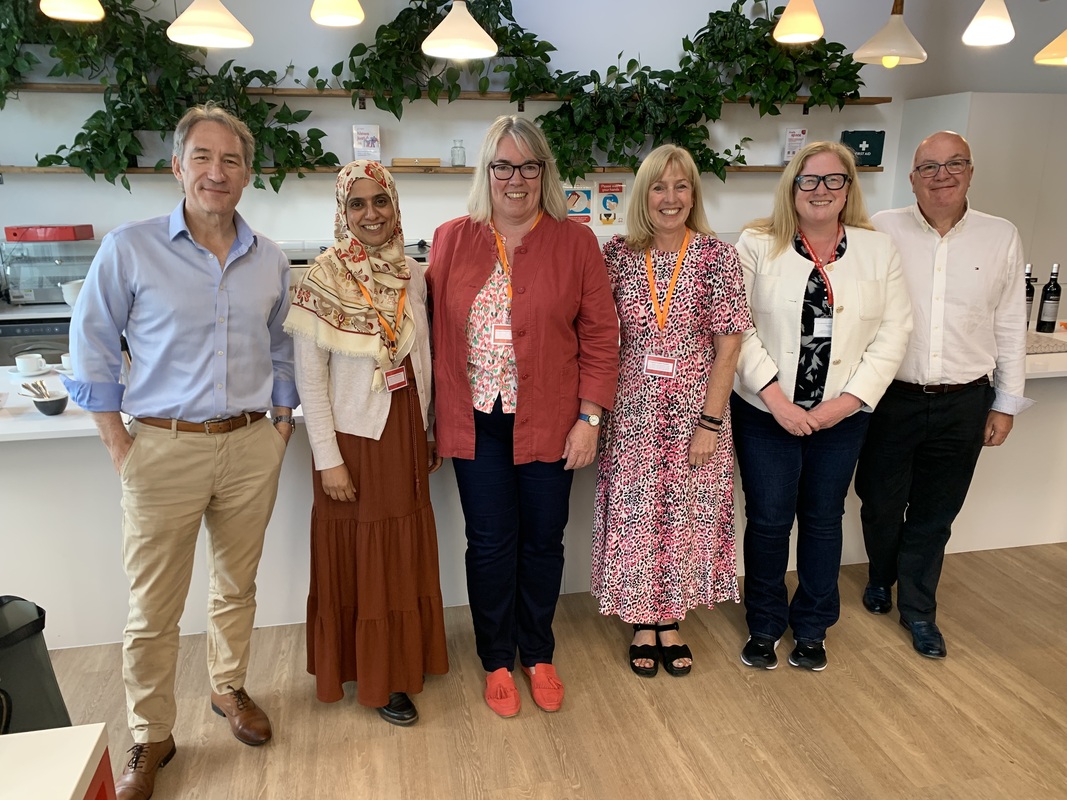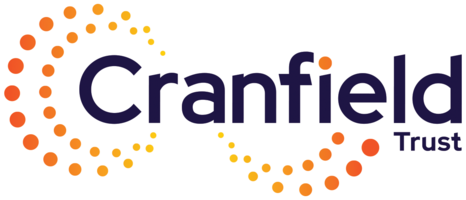
After more than 25 years, I’m changing my role at Cranfield Trust. I’m retiring from the post of Chief Executive and becoming a volunteer, joining 1,450 others nationally, who give their time and expertise to support welfare charities.
I’m both sad to be leaving a fantastic job in a wonderful charity and a great team, and excited to start a new phase as a Trust volunteer and Chair of Read Easy, a brilliant charity that supports adults in learning to read. After such a long time in one job, it’s hard to think objectively about skills or knowledge that might apply to different roles, so I’ve been thinking about some of the key things I’ve learned over my time with Cranfield Trust, which I will take with me.
Ambition: If I’d known then what I know now … I would have set out a bigger picture from the start. When I became Chief Executive, I knew very little about the voluntary sector. I was fortunate enough to find some great colleagues early on, who taught me a great deal about the sector and how it operates, but I didn’t have a strategic approach – it was just step-by-step.
It’s amazing to me that Cranfield Trust now supports hundreds of charities every year with consultancy and mentoring, and reaches several thousand through our other services. I had no idea in the early days that we would achieve such scale, and I wish I’d taken more time to think strategically from the start.
A lesson I learned at Cranfield University’s Venture Day was from a commercial company: it was to claim the ground. They had issued a message about UK-wide expansion, which deterred a competitor from entering the UK market – this struck me as very relevant to the voluntary sector, where the emphasis is on collaboration rather than competition. Being open about your position, your offer, and your plan means that others working in the same space can find you to collaborate or work with you to develop joint offers that achieve more together.
Relationships are perhaps the most critical things in running any organisation, and I will miss the people I’ve been fortunate enough to work with over many years, colleagues, supporters, sector partners, and friends. Communicating well and engaging both internally and externally couldn’t be more important. Many charities lack the resources to hire a communications professional, but it’s definitely worth seeking some pro bono advice or volunteer support in communications, as effective communication is crucial at all times.
Building trust is vital, requiring honesty and openness, as well as consistency and reliability. Being confident in what can be done, and not over-promising, helps build relationships of trust, which are essential for any organisation and for retaining people, whether they’re clients, customers, or colleagues. Sharing insight or industry knowledge with customers or partners also builds confidence and trust.
Many years ago, I was fortunate enough to meet a Foundation Chair, who then kindly supported Cranfield Trust with a grant. It was a generous grant, and over the years, the Foundation has increased its (unrestricted) funding substantially. I remember what the Chair said to me in the early years of working together: ‘We need to get to know each other, one dance at a time.’ That stayed with me – building trust step by step, and learning from and about one another, is vital in any relationship, funding or other!
Small things make a difference too: the colleague who handles our enquiries always tries to refer people to other sources of support if Cranfield Trust can’t help, so that nobody goes away empty-handed. We try to be good customers, paying our suppliers’ bills quickly. Saying thank you is really important to us: we try hard to thank everyone who helps Cranfield Trust, whether it’s a simple email or a thank you card from one or more of us. It turns out that saying thank you is surprisingly unusual – so people really appreciate it.

Photo: Amanda Tincknell pictured recently with some members of the Board. Left to right: Andrew Caveney, Salma Ravat, Amanda Tincknell, Jackie McMahon, Charmaine Griffiths (Chair) and Graham Clarke
Simply the best: setting high standards and focusing on quality is essential. Getting the best people you can – even if it’s for less time, or in another capacity (volunteer? Trustee? NED?) really pays off. Cranfield Trust has a fantastic trustee Board, and it’s been a huge honour and pleasure for me to have had the opportunity to work with, and learn from, some incredible people as trustees – and with other brilliant people through the Trust’s amazing network. Being part of a charity is like having a magical passport – it puts you in touch with all sorts of great people outside your own circle who are interested in the charity’s work and purpose. Getting advice from the best people in your field is a huge help – often people are very willing to have a short call, or give advice and guidance, so don’t be afraid to reach out.
In terms of colleagues, part-time working is very common in the voluntary sector, and it’s possible to find fantastic people who want to work part-time, or work flexibly around other commitments. Being flexible with more than just time really helps to attract and retain great people too – recognising that many people have commitments and demands outside of work, and supporting them by being flexible about time off or enabling them to work remotely or from another location can all help to keep valued colleagues with you.
Sustainability is more than just financial stability. Having said that, I’m slightly obsessed with cash flow forecasting and look forward to the cash flow part of our monthly management accounts. Looking ahead and considering how much time is available to generate income or cut costs helps avoid last-minute – and potentially less-than-optimal – decisions.
Developing processes, business models, and ideally, some intellectual property, means that the organisation has structure and support for its activities, and isn’t as dependent on individuals to keep going. In the voluntary sector, ‘founder syndrome’ is well-known and can make it difficult for an organisation to flourish beyond a particular individual. Strong processes, care in handing over relationships, and open communications can help to make a smooth transition to new leaders and managers.
And finally … It’s the people who make all the difference. I’ve been so lucky to have wonderful colleagues from whom I’ve learned an enormous amount, to meet inspiring people from all sectors, and to find extraordinary people in the voluntary sector who’ve inspired me and surprised me with new ideas as well as humbled me with their commitment and determination.
A few years ago, Cranfield Trust was fortunate enough to be given pro bono support to rebrand – we considered everything from our vision and mission, through to our values, our brand persona, and our logo. This was a crucial process for us to think deeply about who we were as individuals and as an organisation, and we had some excellent discussions as a staff group and with trustees about what we wanted our brand to convey. It was an incredible experience, and made me realise how fortunate I’d been – not just in receiving wonderful pro bono support – but in being part of an organisation and a group of people committed to supporting strong and effective charities that change lives and our society.
Joining a new sector all those years ago and building an organisation over a long period has given me a sense of purpose and fulfilment beyond what I ever expected in my working life. It’s enabled me to be myself, to learn more and do more than I ever anticipated, and to work with truly excellent people, both inside and outside Cranfield Trust. As I step down, I’d like to say a big thank you to everyone who’s supported me, and Cranfield Trust, over the last 25 years – it’s been an amazing journey.



